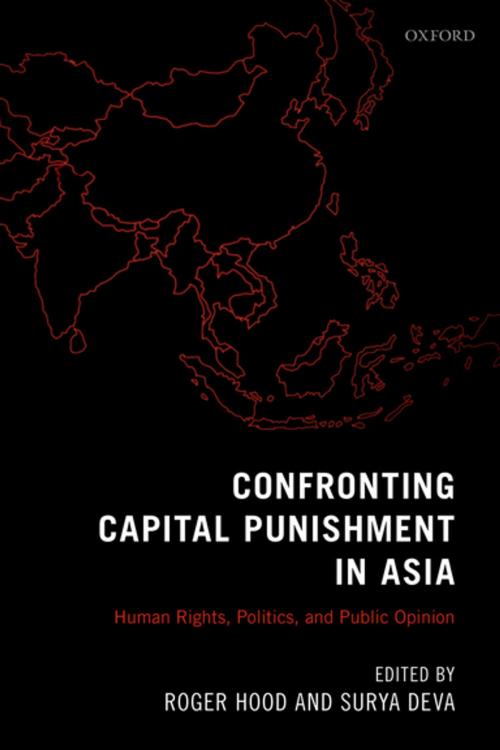Confronting Capital Punishment in Asia
Human Rights, Politics and Public Opinion
Nonfiction, Reference & Language, Law, Criminal law, Social & Cultural Studies, Political Science| Author: | ISBN: | 9780191509018 | |
| Publisher: | OUP Oxford | Publication: | November 7, 2013 |
| Imprint: | OUP Oxford | Language: | English |
| Author: | |
| ISBN: | 9780191509018 |
| Publisher: | OUP Oxford |
| Publication: | November 7, 2013 |
| Imprint: | OUP Oxford |
| Language: | English |
With the strengthening focus worldwide on human rights, there has been a rapid increase in recent years in the number of countries that have completely abolished the death penalty. This is in recognition that it is a violation of the right to life and the right to be free from cruel, inhuman and degrading punishment. There has, simultaneously, been pressure on countries that still retain capital punishment to ensure that they at least apply the United Nations minimum human rights safeguards established to protect the rights of those facing the death penalty. This book shows that the majority of Asian countries have been particularly resistant to the abolitionist movement and tardy in accepting their responsibility to uphold the safeguards. The essays contained in this volume provide an in-depth analysis of changes in the scope and application of the death penalty in Asia with a focus on China, India, Japan, and Singapore. They explain the extent to which these nations still fail to accept capital punishment as a human rights issue, identify impediments to reform, and explore the prospects that Asian countries will eventually embrace the goal of worldwide abolition of capital punishment.
With the strengthening focus worldwide on human rights, there has been a rapid increase in recent years in the number of countries that have completely abolished the death penalty. This is in recognition that it is a violation of the right to life and the right to be free from cruel, inhuman and degrading punishment. There has, simultaneously, been pressure on countries that still retain capital punishment to ensure that they at least apply the United Nations minimum human rights safeguards established to protect the rights of those facing the death penalty. This book shows that the majority of Asian countries have been particularly resistant to the abolitionist movement and tardy in accepting their responsibility to uphold the safeguards. The essays contained in this volume provide an in-depth analysis of changes in the scope and application of the death penalty in Asia with a focus on China, India, Japan, and Singapore. They explain the extent to which these nations still fail to accept capital punishment as a human rights issue, identify impediments to reform, and explore the prospects that Asian countries will eventually embrace the goal of worldwide abolition of capital punishment.















